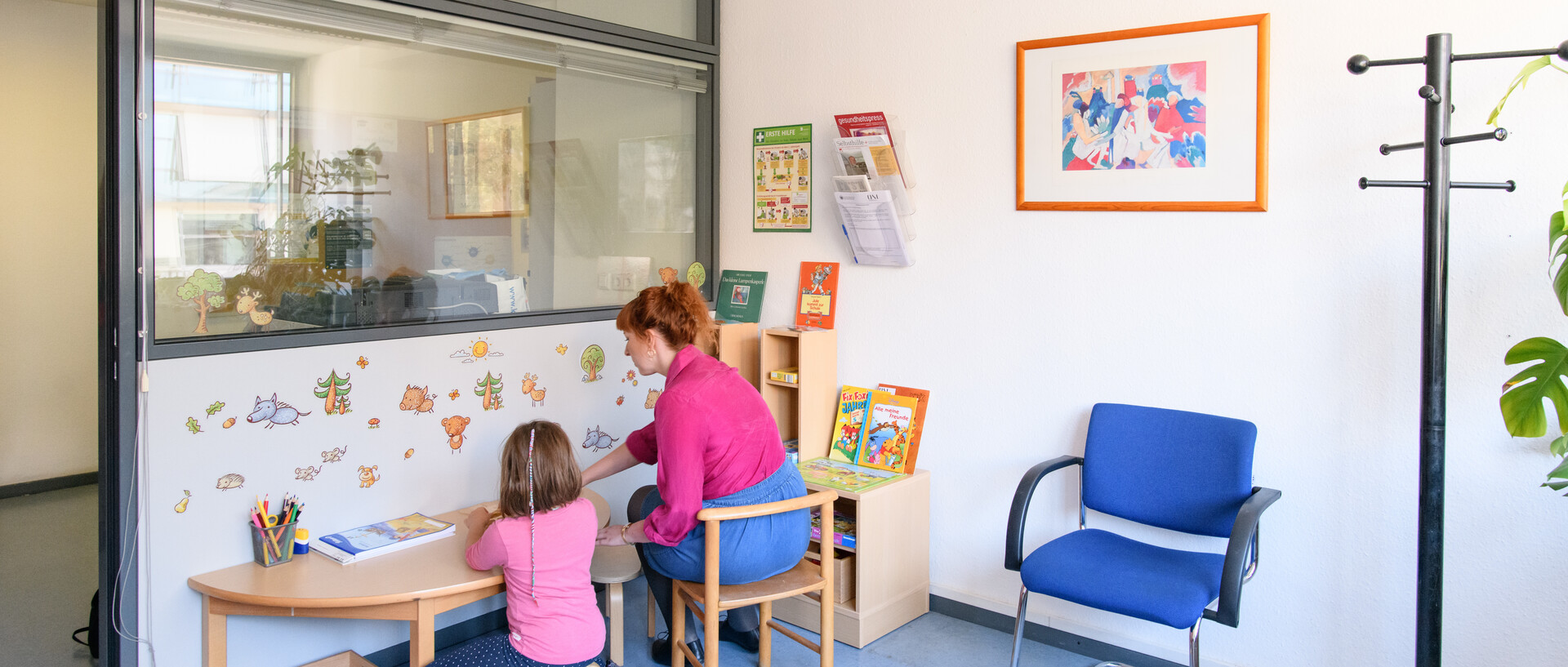Psychotherapy for Children and Adolescents
Childhood and adolescence are full of exciting developments, changes and constantly new challenges. Since this stage of life is so turbulent, it may lead to many crises and conflicts, for example, when the young individuals are not able to adjust to new requirements or they fail to master the next stage of development. It can often be difficult to determine whether these are serious mental health issues, the specific characteristics of a young person, or temporary abnormalities within the scope of a child’s or adolescent’s development. Therefore, it is advisable to get professional help. A sound diagnostic clarification can help determine whether therapy is required and psychotherapy should be sought.
When should children or adolescents consider psychotherapy?
- In case of any mental issue or behavioral problem causing their parents or other reference persons considerable worry.
- The child or the adolescent is not able to manage his or her developmental tasks and requirements anymore.
- In case of especially stressful situations within the family and with other reference persons from the young individual’s environment, such as in kindergarten, school, training and other institutions, leading to constant or recurring conflicts.
What problems and disorders do we treat in children and adolescents?
- Attention and hyperactivity disorders
- Social-emotional effects due to learning disabilities
- Prominent aggressive, defiant and oppositional behavior
- Constant fears and phobias, school phobia, school absenteeism
- Self-esteem issues, social insecurities, emotional instability
- Self-harming behavior
- Depressive disorders
- Eating disorders
- Difficulty in building connections and relationships, separation and detachment issues
- Insomnia
- Enuresis and encopresis
- Obsessive-compulsive disorders and tics
- Physical complaints without an organic diagnosis
- Chronic diseases becoming an emotional burden, e.g. asthma, diabetes or neurodermatitis
- Stress responses to traumatic experiences
- And other psychological stress
The therapy focuses on the immediate management of the mental distress. According to the young individual’s developmental stage and life circumstances, we work together to identify the causes and triggers of the complaints and how we can change them. Depending on the age of the child or adolescent, we involve their parents to varying degrees.
First steps to psychotherapy
Therapy yes or no?
In a first session with a therapist of our outpatient clinic team, it will be decided whether psychotherapy is recommended. Afterwards, you can make additional appointments for exploratory sessions with your future therapist, if necessary.
Filing a health insurance claim
In case you want to undergo therapy, a claim can be submitted to your health insurance provider for the reimbursement of outpatient psychotherapy. Statutory health insurance providers cover the costs for psychological psychotherapy. Patients with private health insurance should inquire with their payers to what extent and under what conditions the cost of therapy is covered. We will be happy to help you with the reimbursement.
Duration and underlying conditions
Psychotherapy is a temporary measure. We distinguish between short-term and long-term therapy. In addition to the individual sessions with the young person, it is also possible to make appointments with the parents or the most relevant reference persons. The sessions usually take place on a weekly basis and last for approximately 50 minutes.
During the entire course of treatment sound diagnostics are carried out which will be discussed together afterwards. In case there are any additional medical problems, we collaborate with the relevant physicians.
